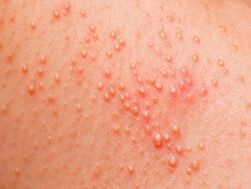Parasites are pathogenic organisms that can live in the body of an animal and even in some plants.There are many types of creatures in the world that penetrate the host’s body, feeding on its beneficial substances, actively multiplying and leaving waste in its body, which leads to the development of all kinds of diseases.
Most often, worms are found in humans.These are worms of various lengths and sizes, which mainly live in the spinal intestines.But some helminths can migrate throughout the body, penetrating into the muscles, liver, heart, joints, lungs and even the brain.
Worms harm the body of their owner, so everyone should know how to determine the presence of parasites in the body.But many people do not want to go to the hospital, waste their time and take tests on helminths is unfounded.
In this case, a person can find out whether there are parasites in the body, drawing attention to such an important criterion as characteristic symptoms that develop with a certain form of helminthiasis.What if they are not?This does not happen!
However, at the early stage of helminthic invasion, the signs of the vital activity of foreign microorganisms are weakly expressed or they are completely absent.An intensive and pronounced clinical picture becomes only when helminths are actively developing, because their larvae cannot parasitize in a person.
How to establish the presence of worms in the body without medical research?

Different types of parasites cause characteristic symptoms in the owner.If they are timely identified and correctly deciphered, then this will determine the infection even at an early stage.
Thus, the likelihood of incorrect diagnosis is minimized, which will allow the correct and effective deworming using folk or medical antiparasitic agents.
So, in order to identify parasites in the human body, it is necessary to pay attention to the symptoms:
- Ginger teeth at night.
- Allergic rashes on the skin - acne, acne, urticaria, herpes on the lips, eczema, red spots, papillomas, neurodermatitis, psoriasis and so on.
- The development of diseases of the upper respiratory tract (bronchitis, pneumonia, runny nose), which is characteristic of ascariasis and strungyidosis.
- Bloating of the abdomen and diarrhea appear due to the fact that long helminths prevent the excretion of bile and pancreatic juice.
- Constipation that arise when worms form a ball covering the passage in the intestines.
- Discomfort in the joints and muscles, due to the migration of parasites.
- Strong irritability provoked by painful symptoms.
- Permanent dry cough, which is not treated with standard antitussive drugs.
There is also an increase in body temperature to subfebrile indicators.The causes of this condition can lie in allergies, intoxication of blood, neurological disorders, failures in the functioning of internal organs and brain and in anemic syndrome.

In addition, the genol that lives in a person greatly reduces his immunity, as a result, the patient often suffers from colds.The patient also has protracted depression caused by intoxication of the body.
The characteristic symptoms of helminthiasis are nausea and vomiting, which are also caused by the release of toxic substances.Moreover, certain types of worms can live in the human body, developing specific hormones that affect intestinal microflora, which is why diarrhea occurs.
However, in some cases, such symptoms are not attributed to helminthias, since they are similar to signs of food poisoning.Although this can become a serious problem, the later the treatment will be started, the more harm to the organs and systems of their owner will have time to cause parasites.
Thus, in order to identify helminthiasis at home, a peculiar test should be carried out.To this end, it is necessary to answer the following questions:
- Does itch in the anus occur at night?
- Have the lymph nodes increased?
- Are there skin rashes?
- How often does insomnia appear?
- Does vomiting and nausea arise?
- Are there any charter and muscle pain?
- What frequency does flatulence develop?
- How often does the taste of bitterness appear in the mouth?
If a person has given seven affirmative answers to these questions, then with a high probability it can be argued that his body is infected with worms.
How to identify the type of helminthiasis by symptoms?

At home, you can determine which helminths settled the human body.But this can only be done if the parasitosis has reached the active phase of its development.
Ascaridosis and diphyllobotria are characterized by neurological features that are the most intense in young patients.Aggressive behavior and increased nervousness arise due to the effects of toxic substances on the nervous system.For similar reasons, an infected person has migraine and dizziness.
As a rule, trichinellosis is accompanied by articular and muscle pain, as well as swelling of the face and eyelids.This is due to the features of the life of Trichinell, who live in skeletal muscles.You can get infected with this parasite if you eat a wild animal or pork, which was poorly thermally treated.
Lambiosis affects the functioning of the liver and kidneys and provokes the appearance of all kinds of allergic reactions.Moreover, some people, with damage to the body, suffer from arthritis, developing as a result of intoxication.Also, the invasive patient weakens the immunity, the following diseases develop against this:
- sinusitis;
- stomatitis;
- Bacterial vaginosis and so on.

A characteristic feature of enterobiosis caused by pinworms is an itching in the anal passage.Moreover, most infected people have malfunctions in the work of the digestive tract.
Schistosomosis is characterized by anemic syndrome.Manifestations of dysbiosis also occur (pathogenic microorganisms inhibit a favorable microflora).
With a clonkhosis, fascioselus and opisthorchiasis, the gall bladder is affected and the jaundice syndrome develops.Moreover, against the background of these helminthias, the liver and spleen increases.
Strongyloidosis is manifested by many symptoms.So, with its progression, malfunctions of the digestive tract, dyspeptic disorders and allergic manifestations are noted.
How to determine whether there are helminths of helminths without laboratory conditions?When the worms are in the reproduction phase, to find out about their presence in the body is quite simple.To do this, you need to take an analysis for eggs of parasites.
With the development of opisthorchiasis, you can conduct a study at home on your own.To this end, it is necessary to attach adhesive tape or tape to the skin in the area of the anus.
It is best to carry out such a procedure immediately after waking up in the morning.If a person has opistorchs, then their eggs will be detected on the adhesive surface of the tape.
Laboratory methods for identifying parasites
If the patient has more than three characteristic symptoms of helminthiasis, then he should contact a medical institution so that the determination of the presence of parasites at home is confirmed laboratory.

First of all, in case of suspicion of helminthic invasion, a fecal study is carried out.This allows you to identify eggs of tape, round helminths and saucers.However, to accurately confirm the diagnosis, analyzes must be taken three times every few days.
To determine enterobiosis, a scraping is taken near the anus.Also, one of the most accurate and convenient analyzes for the patient is an ELISA that allows you to detect antibodies produced by the body in the blood during parasitization of pathogenic microorganisms.
Sometimes a bioresonance diagnosis is carried out that studies the frequencies of parasites.This method is very informative, as it determines the state of the body as a whole.In addition, in addition to parasites, such a study allows you to find out the state of immunity, which weakens it, identify other diseases, as well as pathogenic fungi, bacteria and viruses.












